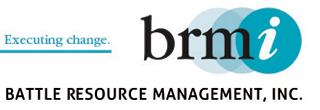
Dan Barahona is Vice President, Business Development at WatchDox, a California-based company that gives organizations access, protect, share, and control their important documents wherever they go. Prior to WatchDox, Barahona was VP, Business Development, at ArcSight, an HP Company. Barahona received his B.S. in Mechanical Engineering from Rensselaer Polytechnic Institute, an M. Eng in Mechanical Engineering from Cornell University, and an MBA in Finance from the University of Michigan.
Barahona spoke with WashingtonExec about his company, why he is looking at the federal market, Blackstone’s relationship with WatchDox, advice he has for federal CTOs/CIOs, why he biked across the country, and more.
WashingtonExec: Could you give us a bit of background on your company?
Dan Barahona: We were founded in 2008, with headquarters in Silicon Valley (we are actually in Palo Alto). We’re about 90 employees at the moment and very well-funded with some pretty heavy duty investors in the company. Blackstone is not only a customer of our product but also an investor and we’ve got Shlomo Kramer, Shasta Ventures as well as Millennium.
We focus on the enterprise file sharing and sync space, which is really all about enabling highly secure sharing and collaboration of documents and files, not only within an organization but also with external parties. On top of that, we add a really strong mobile capability, and part of what we do in securing your files and documents is also making them mobile friendly. In some respects you can think of us as a highly secure enterprise class drop box.
Historically, we have focused primarily on the commercial space, so we’ve done extremely well with 100+ enterprise, large high-end premier customers. We are especially strong in sectors like finance, financial services, and banking and we’ve got a really strong presence in pharmaceuticals, healthcare, high tech, and manufacturing. We have sold into the government space but primarily to foreign governments like Australia and Canada.
_____________________________________________________________________________________________
“The one thing that is really unique about WatchDox is this notion of persistent protection.”
_____________________________________________________________________________________________
Yes we do the file synching, we have mobility – all of those are really valuable capabilities. What sets us apart from a security standpoint is that ability to protect data when it’s outside of my network. With our product I can share that sensitive information with you, you can be an external party, you can have devices that I don’t control, but that doesn’t have to mean that I lose control over my data. I can still control whether you can print, edit, copy, paste. I can control whether it expires in a week, month or on a specific day. That’s really what’s truly unique about WatchDox.
WashingtonExec: What made you want to make a play in the federal market?
Dan Barahona: When I joined WatchDox and immediately got into our product and understood the security, control and tracking that we enable on documents, and then couple that with the productivity and mobility features that we enable, that was a perfect match for what I envision our federal government needs. When you think about the need for data security, it’s quite clear there are innumerous use cases for that whether it’s in the classified realm or even in the civilian world, the need to protect privacy information, secrets, classified or sensitive information exists all over the federal government. Agencies are trying to figure it out. It’s a new fast developing market.
To me, everything that I read and analyze about the federal market suggests that this is a perfect fit for what we do. What we’ve been doing is testing that hypothesis by going to shows like Mobile Feds, networking with folks like Tom Suder and getting in front of real life federal people on the DOD side, Intel side and on the civilian side. I’m coming back to my headquarters with reports saying that I didn’t have one single bad meeting. I had people four, five or six people deep at our booth sort of straining to listen to our story and listen to more about it. In all of my history as a start-up guy I have never seen that kind of response to a product.
One of the real struggles or challenges that exist in the market is that the government needs innovation, and we all hear about it. In many respects Washington needs Silicon Valley. Silicon Valley also needs Washington. We, as a start-up, are doing well in many commercial sectors and we want to bring out capabilities to the federal market. Obviously it is a very attractive market for a start-up to get into but incredibly difficult to accomplish. We just want to give these government employees a chance to learn about technologies in a no pressure environment and we want to have an opportunity to share what we do and make our technologies aware to the people that need to know about it.
WashingtonExec: What is WatchDox’s relationship with Blackstone?
Dan Barahona: Blackstone is actually a very strategic partner of ours and started its relationship with WatchDox as a customer. They themselves had a need to secure highly sensitive information for their limited partners. It’s a really good example of what we see commonly, which is the notion that “I have sensitive data that I need to share.”
When we can’t control what happens to data then we are less likely to share it in the first place so it creates inefficiency. What WatchDox does is satisfy the security control problem by protecting data in a way that travels with that data wherever it goes – this is really unique in the market. I have no control over your equipment, your network, which device you are using and yet I still have complete control over what matters to me which is my data. Coming back to the Blackstone use case, they have around 10,000 limited partners and they need to be able to share highly sensitive portfolio information, capital call, or documents. This data by definition needs to leave the Blackstone network. If I’m a Blackstone limited partner I want to be able to access and read all of my relevant documents on whatever device I want to use but Blackstone wants to make sure that information doesn’t get out into the wild. This is what actually brought them to WatchDox initially – they liked the product so much they decided to become an investor in the company as well.
WashingtonExec: If you were able to be in a room five or six federal CTOs or CIOs, what would be your first piece of advice?
Dan Barahona: We see a pattern emerging when it comes to mobility, where as these CIOs are trying to figure out how to embrace mobility but to do so in a secure way we see sort of a standard approach. There is a three legged stool; there is first controlling the device which is where MDM vendors really play. Then there is controlling and managing the applications that can run on that device and that’s really satisfied by the MAM vendors of the world, many of which the MDM vendors provide that capability.
____________________________________________________________________________________________
The third leg in many ways is the thorniest and that is, once I’ve enabled email on my mobile devices, the next thing people want to do is get access to content for their documents.”
_____________________________________________________________________________________________
The traditional approach to securing mobile content is to focus on storing any content in an encrypted container on that device which is fine, and there are perfectly good reasons to take that approach. The problem is that doesn’t really solve your data security problems because data is different than a device. Data can travel very easily from one place to another, from one device to another. A different approach is needed when it comes to enabling access to data and that is what we think of as the data centric model, the data centric security model.
WashingtonExec: What is something most people might not know about you?
Dan Barahona: Well, now that I have young kids I don’t get to enjoy this hobby nearly as much as I used to, but I’ve had cycling in my veins since I was growing up in DC as a teenager. My father worked at the World Bank, my mother for World Health Organization, and I used to spend my summers as a bike messenger in downtown DC. Now I get to wear suits for meetings at buildings I used to deliver to twenty years ago. After business school I completed a childhood dream of mine to ride across the country – I started by dipping my rear wheel in the Pacific in Los Angeles and road straight to Boston, where I dipped my front wheel in the Atlantic. 49 days I will never forget!


